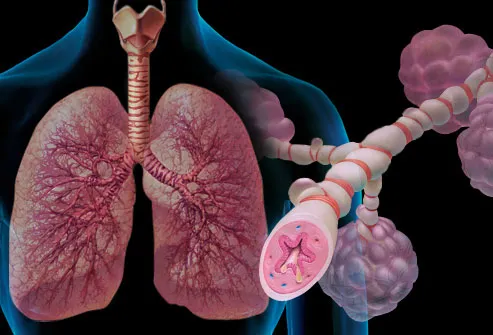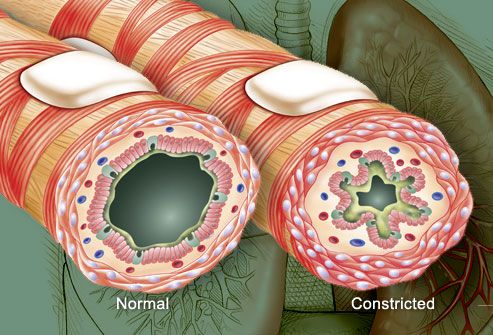EVERYTHING YOU WANT TO KNOW ABOUT ASTHMA
What Is Asthma?
Asthma is a lung disorder that interferes with breathing. It can cause serious, recurring episodes of wheezing and breathlessness, known as asthma attacks. The trouble stems from chronic inflammation in the tubes that carry air to the lungs. While there is no cure, there are highly effective strategies for keeping asthma symptoms at bay.

Symptoms of an Asthma Attack
Symptoms of an asthma attack include:
Wheezing
Coughing that won't stop
Shortness of breath
Tightness in the chest
In severe cases, an untreated asthma attack can be life-threatening.


http://gseasyrecipes.blogspot.com/
for info about knee replacement, you can view my blog-
http://Knee replacement-stick club.blogspot.com/
for crochet designs
http://My Crochet Creations.blogspot.com
Asthma is a lung disorder that interferes with breathing. It can cause serious, recurring episodes of wheezing and breathlessness, known as asthma attacks. The trouble stems from chronic inflammation in the tubes that carry air to the lungs. While there is no cure, there are highly effective strategies for keeping asthma symptoms at bay.

Symptoms of an Asthma Attack
Symptoms of an asthma attack include:
Wheezing
Coughing that won't stop
Shortness of breath
Tightness in the chest
In severe cases, an untreated asthma attack can be life-threatening.
When to Seek Emergency Care
Some asthma attacks require emergency treatment. Call 911 if:
You are too breathless to walk or talk.
Your lips or fingernails look blue.
Using a rescue inhaler doesn’t help.
These are signs that your body is not getting enough oxygen. Emergency treatment can help open the airways and restore oxygen levels.
Asthma Early Warning Signs
Sometimes asthma causes more subtle symptoms that don't interrupt your daily activities. But these can be warning signs that a full-blown asthma attack is imminent. Red flags to watch for include frequent coughing (especially at night), difficulty sleeping, unexplained fatigue, and feeling out of breath.
What Causes an Asthma Attack?
In people with asthma, the airways are chronically inflamed. Certain triggers can make the inflammation worse and cause a narrowing of the airways. At the same time, the body may produce extra mucus that clogs the airways. These changes work together to restrict the flow of air to the lungs. As too little air gets through, wheezing and breathlessness occur.

Asthma Triggers: Allergies
Allergens that can trigger an asthma attack include:
Mold
Dust mites
Cockroaches
Pollen from trees or flowers
Foods such as peanuts, eggs, fish
If pollen is one of your triggers, you'll probably notice your asthma symptoms are worse at certain times of year.
Asthma Triggers: Pets
Pet allergies are another common asthma trigger. The problem is dander -- dead skin cells that collect on clothing, furniture, and walls. When pet dander is inhaled, it can cause an asthma attack in as little as 15 minutes. People with cat allergies react to a protein in the cat's saliva, skin, and urine. This protein accumulates in the air or on surfaces and can trigger asthma attacks in 20% to 30% of people with asthma.
Asthma Triggers: Air Pollution
Outdoor and indoor air pollution can make asthma symptoms worse. Top irritants include smog, cigarette smoke, paint fumes, and even hairspray. These are known as non-allergic asthma triggers. They don't cause an allergic reaction, but can prompt an asthma attack by irritating the airways.
Asthma Triggers: Exercise
The health benefits of regular exercise are extensive and well-documented. But physical activity can also trigger asthma symptoms in many people. This is sometimes called exercise-induced asthma. Fortunately, this doesn’t mean you have to give up exercise. There are ways to control asthma so it won't interfere with the activities you enjoy.
Asthma Triggers: Weather
People with asthma may notice that symptoms get worse during certain types of weather. When the temperature drops, the chances of having an asthma attack may go up. Other triggers include air that is extremely humid or very dry.
Who Gets Asthma?
Asthma can appear at any age, but it typically develops during childhood. Those most at risk include people with allergies or a family history of asthma. Having a parent with asthma makes children three to six times more likely to develop the condition. Gender also plays a role. Asthma is more common in boys during childhood but in women during adulthood.
Occupational Asthma
Certain types of jobs can raise your risk of developing asthma as an adult. This includes working in a factory or other environment where you are routinely exposed to certain chemicals or industrial dusts.
Asthma and Smoking
Several studies suggest that adults and teenagers who smoke are more likely to develop asthma. And there is strong evidence to incriminate secondhand smoke as well. Kids who are around people who smoke have a higher chance of getting asthma early in life.
Asthma and Obesity
Asthma is also more common in people who are overweight or obese. In a review of seven studies, researchers found asthma to be twice as common in obese adults and 38 percent more common in overweight adults, compared to people with a healthy BMI.
Asthma attacks on the Rise
Asthma rates have been rising steadily in the U.S. for decades. Some researchers suggest this is the result of better hygiene, which has reduced the number of childhood infections. The theory is that fewer infections may mean a less well-developed immune system, and an increased risk of asthma. Other possible explanations are the increased use of household cleaning sprays, the decreased use of aspirin, and lower levels of vitamin D.
Diagnosing Asthma
If you have symptoms of asthma, your doctor will want to check how well your lungs are working. A lung function test, also called spirometry, measures how much air you can breathe in and out. The results will help determine whether you have asthma and how severe the condition is. Your doctor may also recommend allergy testing to pinpoint some of your asthma triggers.
Managing Asthma: Avoiding Triggers
The first step in controlling asthma is to identify and avoid your triggers. This may mean staying indoors when the smog index is high or getting special bedding to combat dust mites. The most effective way to fight allergens in the home is to remove the source, which may include pets, carpets, and upholstered furniture. Dusting regularly and using a vacuum cleaner with a HEPA filter may also help.
Managing Asthma: Allergy Shots
If you can't avoid some of the allergens that cause your asthma attacks, your doctor may recommend allergy shots. These shots help desensitize you to particular triggers and may lessen your asthma symptoms. An allergist can help determine which shots are right for you.
Managing Asthma: Long-Term Medication
It is virtually impossible for people with asthma to avoid all their triggers all the time. For this reason, many people need to take daily medication to prevent asthma attacks. Inhaled corticosteroids are the most common medication for the long-term control of asthma. They work by reducing inflammation in the airways, making them less sensitive to irritants in the air.
Quick Relief for Asthma Attacks
Even with the use of long-term medication, asthma symptoms sometimes flare up. When this happens, you'll need another type of inhaler to provide quick relief. Short-acting beta2-agonists are the most common choice. These rescue inhalers quickly relax the tightened muscles around the airways, restoring the flow of air to the lungs. Most asthma attacks respond to this medication, eliminating the need for a hospital visit.
Using a Peak Flow Meter
To determine whether your asthma is under control, your doctor will probably recommend using a peak flow meter. You blow into the device, and it measures how well air is moving out of your lungs. Changes in your peak flow score can help warn you that an asthma attack might occur soon.

Asthma Action Plan
Most people with asthma are able to keep the condition under control. The key is to play an active role in developing a treatment strategy. Sit down with your doctor to develop an asthma action plan.This plan will identify your triggers, list your daily medications, and outline what to do when you have a flare-up. By following the plan (and adjusting it when needed), you may be able to eliminate most of your asthma symptoms.
ps- this is only for information, always consult you physician before having any particular food/ medication/exercise/other remedies.
ps- those interested in recipes are free to view my blog-
http://gseasyrecipes.blogspot.com/
for info about knee replacement, you can view my blog-
http://Knee replacement-stick club.blogspot.com/
for crochet designs
http://My Crochet Creations.blogspot.com
Labels: air pollution, allergens, asthma, blue, breathing, breathlessness, corticosteroids, cough, dust mites, fingernails, inflammation, interferes, lips, lung disease, mold, obesity, pets, pollen, tightness in chest, wheezing

0 Comments:
Post a Comment
<< Home